mobile Ansicht, to the English Version tap the flag
![]()

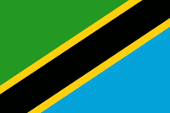


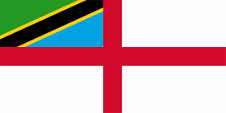
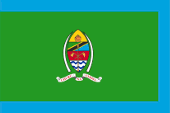
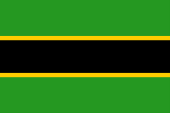
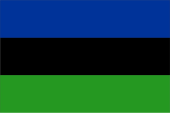
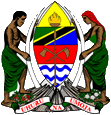


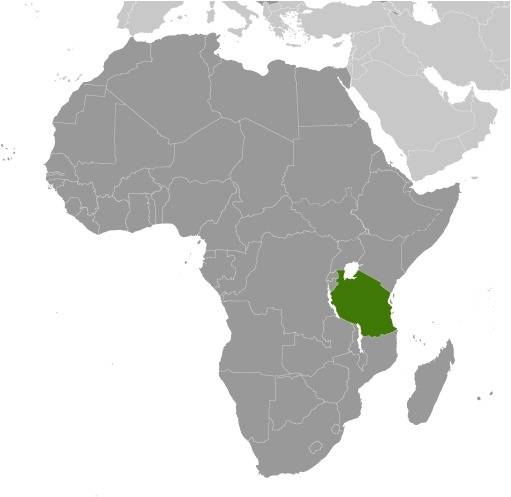
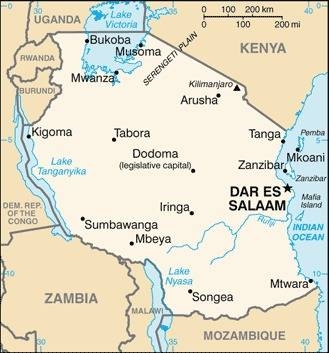
Antike · Siedlungsgebiet der Bantu-Stämme
8.–15. Jhd. · Sansibar ist häufiges Ziel arabischer und persischer Händler, Gründung von Handelsposten, Islamisierung, arabische Besiedlung
975 · Gründung von Sansibar und Kilwa als arabische Handelsstützpunkte
1499 · der portugiesische Seefahrer Vasco da Gama segelt auf dem Weg nach Indien entlang der Küste
28.01.1499 · Vasco da Gama besucht Sansibar
1505 · Eroberung von Kilwa durch die Portugiesen, Inbesitznahme der gesamten Ostküste Afrikas
1698–1730 · die Küste Tanganjikas fällt an Oman, ebenso Sansibar
1856 · Tod des Sultans von Oman, in Folge britischem Drucks Teilung des Landes (Teilung der Dynastie in zwei Linien) in das Sultanat Oman und das Sultanat Sansibar, die Küste Tanganjikas kommt an Sansibar
17.02.1885 · Carl Peters erwibt im Namen der Deutsch-Ostafrikanischen Gesellschaft (DOAG) Territorien im Landesinneren vom Sultan von Sansibar
27.05.1885 · Errichtung des Protektorats Deutsch-Ostafrika einschließlich Deutsch-Witu (im heutigen Kenia gelegen)
28.04.1888 · die DOAG pachtet die Küste des Festlands vom Sultan von Sansibar
01.07.1890 · Helgoland-Sansibar-Vertrag, das Deutsche Reich verzichtet auf sein Protektorat über Sansibar, im Gegenzug Erwerb der Insel Helgoland von Großbritannien und die Abtretung von Deutsch-Witu an Großbritannien
07.11.1890 · Großbritannien errichtet sein Protektorat über das Sultanat Sansibar, die Sultane von Sansibar regieren künftig im Auftrag der britischen Krone, die durch einen Residenten in Sansibar vertreten ist
20.11.1890 · die Verwaltung des Protektorats Deutsch-Ostafrika wird der DOAG nach Aufständen und Unruhen entzogen, Bildung der Kolonie Deutsch-Ostafrika
1896/1890 · Grenzverträge mit Großbritannien und Portugal
1914–1918 · Erster Weltkrieg (1916 · britische, indische, südafrikanische, belgische und portugiesische Truppen erobern Deutsch-Ostafrika, Widerstand der deutschen Schutztruppe bis zum 14.11.1918, 1918 · portugiesische Truppen besetzen das Ruvuma-Dreieck)
1919 · Ruanda und Urundi kommen unter belgische Verwaltung
1920 · das Ruvuma-Dreieck wird an Portugal abgetreten (zu Portugiesisch-Ostafrika [Moçambique])
20.07.1922 · Deutsch-Ostafrika wird unter dem Namen Tanganjika britisches Mandatsgebiet des Völkerbundes
11.12.1946 · Tanganjika wird britisches Treuhandgebiet der UNO
1954 · Gründung der TANU-Partei (Tanganyika African National Union), sie fordert die Unabhängigkeit des Landes
1957 · Großbritannien gewährt Sansibar eingeschränkte Autonomie
01.05.1961 · Großbritannien gewährt Tanganjika Selbstverwaltung
09.12.1961 · Großbritannien gewährt Tanganjika die Unabhängigkeit im Rahmen des Commonwealth of Nations
09.06.1962 · Gründung der "Republik Tanganjika"
24.06.1963 · Großbritannien gewährt Sansibar Selbstverwaltung
10.12.1963 · das Sultanat Sansibar wird unabhängig und Mitglied des Commonwealth
12.01.1964 · Revolution, Sturz des Sultans, Sansibar wird Volksrepublik, Massaker an der arabischen Bevölkerung, noch im Januar kommt es zu einem Staatsstreich, die Afro-Shirazi-Partei ergreift die Macht
27.04.1964 · die Volksrepublik Sansibar vereinigt sich mit der Republik Tanganjika zur "Vereinigten Republik von Tanganjika und Sansibar"
29.10.1964 · Umbenennung in "Vereinigte Republik Tansania"
1965 · Etablierung eines Einparteiensystems (TANU in Tanganjika, ASP in Sansibar)
1977 · TANU und ASP schließen sich zur CCM-Einheitspartei zusammen
1978 · Krieg mit Uganda
1992 · Ende des Einparteiensystems
Oktober 1995 · erste freie Wahlen in Sansibar nach 30 Jahren
ab 2000 · Erstarken der islamistisch geprägten Unabhängigkeitsbewegung auf Sansibar, die für eine Trennung von Tanganjika eintritt, Erstarken der Tanganjika-Nationalbewegung
Quelle:
Atlas zur Geschichte,
Wikipedia (D),
Discovery '97,
Volker Preuß
![]()
